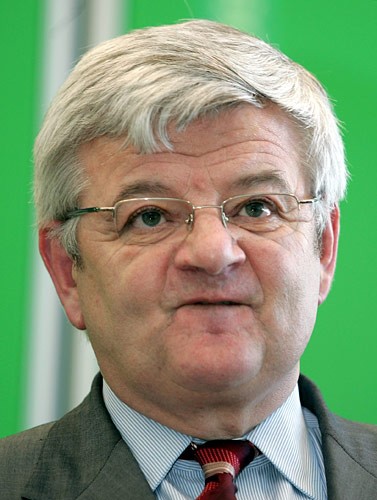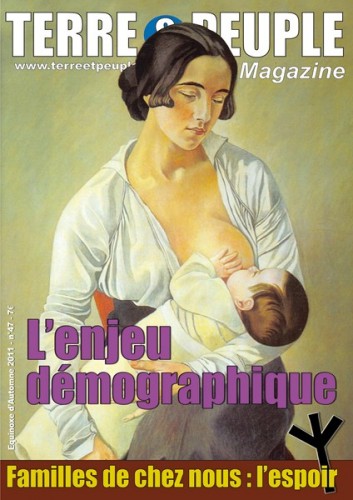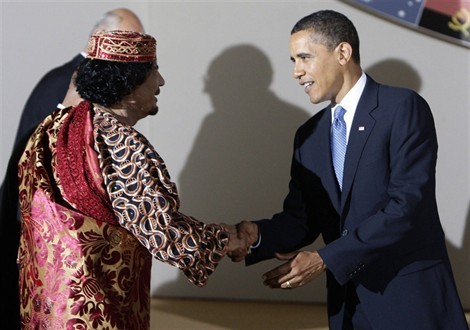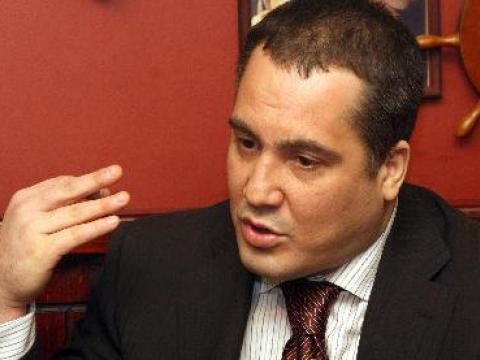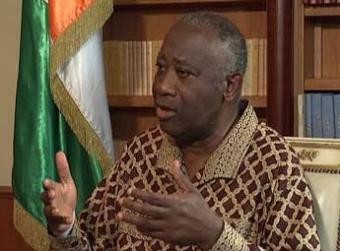Boomerang libico per un fragile Occidente
di Raffaele Sciortino
Fonte: megachip [scheda fonte]

È dunque tornata la guerra umanitaria. Entrata nel sistema dell’informazione e di qui nell’immaginario collettivo, non c’è neanche più bisogno di virgolettarla. Ritorna però in un contesto del tutto mutato rispetto agli anni Novanta. Ieri, sull’onda lunga della caduta del Muro e con la finanziarizzazione in piena ascesa, gli States avevano in mano saldamente l’iniziativa e potevano elargire promesse ai nuovi arrivati nel consesso delle democrazie occidentali. Oggi siamo dentro una crisi globale che è un aspetto dello smottamento profondo e strutturale dei meccanismi di riproduzione della vita sociale complessiva (vedi Fukushima). L’interventismo umanitario non ha l’iniziativa. La guerra alla Libia è reazione.
Reazione alla prima fase della sollevazione araba. Reazione di poteri voraci ma in affanno contro i possibili passaggi di radicalizzazione di un moto ampio e profondo in pieno svolgimento che sta intrecciando, dal basso, istanze di dignità, potere e riappropriazione. E che non ha bisogno di “aiuti” ma piuttosto rimanda un messaggio di possibile costruzione di un percorso comune di lotta e emancipazione.
Confitto di narrazioni
È da questa visuale - rovesciando la narrazione “democrazia”/tirannide o pro/contro Gheddafi - che è possibile sfuggire alla trappola-ricatto del dispositivo Onu “a protezione dei civili” sbandierato dall’”onesto” Napolitano e dalla macchietta Berluska, e all’ipocrita giustificazione dell’intervento da parte di chi voleva mandare i poliziotti francesi contro le piazze tunisine, come Sarkozy, o come Obama si muove con il double standard di sempre rispetto ai governi da sostenere o disarcionare e, ancor più cinicamente, ai morti buoni o cattivi. Le bombe sulla Libia fanno il paio con l’appoggio di Washington all’asse militari-fratelli musulmani concretizzatosi nel referendum costituzionale egiziano di pochi giorni fa a sancire la “transizione ordinata” auspicata dall’amministrazione Obama. Fanno il paio con l’avallo statunitense alla repressione dei moti in Bahrein, dopo l’ingresso di truppe saudite nel paese che ospita la base della V flotta, con il via libera a nuovi raid israeliani, con la situazione in Yemen e altro ancora.
Sono i movimenti che nulla hanno da farsi perdonare rispetto a certi indifendibili personaggi a poter costruire una propria autonoma posizione. Non è facile, certo, in quanto la strategia occidentale sta cercando di rimettere piede nell’area utilizzando come varco non solo l’occasione offerta dalla repressione gheddafiana ma proprio le istanze detournate in senso reazionario delle stesse insorgenze arabe. Ma neanche impossibile se riusciamo a ricollegarci con il senso profondo di queste istanze che è quello di rimettere in discussione un ordine globale sempre più ingiusto, incerto e onnivoro che sta scaricando i costi della crisi sui soliti noti, senza alcuna ricetta alternativa. E se dal mondo arabo salirà ancora più alta e ampia la protesta delle piazze.
Partiamo da un dato. L’intervento umanitario non sembra convincere. Non convince le piazze della Primavera araba che hanno costretto la stessa Lega Araba a tornare un poco sui propri passi. Non i “paesi emergenti” che - a ragione, e con l’aggiunta di Berlino - intravedono nella prima guerra tutta di Obama il segnale di una rinata tentazione U.S. a fronte di una crisi globale irrisolta. E neanche una buona parte della gente comune in Occidente, passiva è vero, ma il cui sentire è assai differente dai tempi della guerra kosovara. La coalizione dei volenterosi - reminescenza bushiana non casuale - si è mostrata fin qui litigiosa e soprattutto divisa su interessi tutt’altro che ideali, ma lo stesso mandato Onu sta perdendo di credibilità in particolare nell’opinione araba a misura che si è rivelato un lasciapassare per massicci bombardamenti (significativa la contestazione al Cairo contro il segretario generale dell’Onu da parte dei ragazzi del 25 gennaio). E se da Washington a Parigi e Londra la parola d’ordine - ora anche pronunciata a voce alta - è far fuori Gheddafi, questo vorrà dire bombardamenti continui e ancor più massicci e truppe di terra, o al minimo spaccare in due il paese, se non ridurlo ad una situazione tipo Somalia. La vicenda potrebbe dunque non chiudersi in poche settimane.
In quest’ottica - presupponendo il quadro, tutt’altro che lineare, aperto dalle soggettività in rivolta nel mondo arabo - proviamo qui a mettere a fuoco il ruolo peculiare di Washington e a schizzare i contorni geopolitici, peraltro in continuo movimento, della situazione.
Le due interpretazioni dell’intervento
La svolta interventista di Washington è maturata dopo una discussione assai accesa all’interno dello staff della Casa Bianca grazie alla spinta decisiva della Clinton, supportata da un’aperta alleanza tra neocons riciclati e internazionalisti liberali[1], contro le forti e aperte remore del Pentagono[2] e dei realpolitiker[3]. Se ne danno grosso modo due interpretazioni. Secondo la prima - ad esempio Lucio Caracciolo di Limes - si tratta di una decisione in cui Washington sarebbe stata tirata per i capelli dal protagonismo francese dentro un quadro di incertezza sul che fare rispetto al rimescolamento di carte in corso nel mondo arabo. Non si tratterebbe allora di un’american war, anche se ovviamente l’apporto militare statunitense resta indispensabile. Le affermazioni della Clinton sulle unique capabilities degli States sarebbero una subordinata del mesto/onesto riconoscimento obamiano “Non guidiamo noi la coalizione”. Una lettura, questa, cui pare sottesa la tesi del “declino americano”[4].
C’è invece una lettura che invita a guardare alle azioni che, come scrive il Washington Post[5], parlano più chiaro e a voce più alta delle dichiarazioni. Innanzi tutto, senza la garanzia della messa in moto del dispositivo militare e di comando statunitense Sarkozy non sarebbe stato in grado di muoversi e tanto meno di annichilire le forze aeree e le infrastrutture militari libiche. Questo è un dato evidente se si guarda a marca e numero dei missili lanciati. Mentre il galletto francese si pavoneggiava con il giullare-philosophe Levy, il direttore del comando congiunto delle forze armate U.S. dichiarava al Pentagono nel piano linguaggio lockiano: “Siamo al comando delle operazioni militari”. Inoltre, il ruolo giocato da Washington è stato decisivo nel varo - con “straordinaria velocità” scrive il NYT - della risoluzione Onu 1973 e in particolare della sua formulazione assai ampia ed estremamente flessibile basata sul principio della Responsability to Protect.[6] “A differenza di quel che appare, questa è una guerra tutta americana e ha come obiettivo non il Medio Oriente ma l’Africa”.[7] Il “capolavoro” politico del presidente: lavorare dietro le quinte lasciando la scena agli europei per coinvolgere Onu e Lega Araba.[8]
Regime change versione Obama
Insomma, ad un’analisi più attenta non si può negare l’incertezza che regna a Washington ma neanche il suo ruolo guida peculiare nella nuova impresa libica. Un ruolo in vesti formalmente multilaterali ma dentro un contesto inedito che le interpretazioni correnti colgono solo tangenzialmente. L’incertezza, le esitazioni e titubanze, la confusione sulla catena di comando, il lasciar spazio ai protagonismi francese e inglese, si spiegano innanzitutto a fronte dell’insorgenza in corso e dell’obiettiva difficoltà per Obama di non perdere la regione entro un rimescolamento profondo che comunque gli Stati Uniti non possono impedire. Bloccarlo difendendo uno status quo che va sbriciolandosi significa rischiare di perdere tutto. La partita va giocata dall’interno del cambiamento piuttosto che aggrappandosi ad una realtà oramai indifendibile. (Quasi si trattasse per Obama di recuperare all’esterno quella spinta al change esauritasi all’interno). [9]
Per l’amministrazione statunitense a ben vedere “la Libia conta non per il suo petrolio o l’ intrinseca rilevanza, conta perchè è un elemento chiave della turbinosa trasformazione del mondo arabo”. [10] Detto in altro modo, la partita libica se per Parigi è questione di compensare a danno di Roma la perdita della Tunisia (con un occhio alla “sua” Africa), per Washington è un varco che si apre assai opportunamente non solo per mettere piede militarmente ed economicamente in una sfera già europea a rischio di inserimento cinese - bissando così il successo della secessione in Sudan - ma soprattutto per condizionare e cauzionare politicamente l’insorgenza araba in corso.
Inserirsi in Libia, con forze militari discrete e soprattutto con un regime amico “democratico” e una ritrovata legittimità agli occhi del mondo arabo, proprio ai fianchi dei due paesi in cui le masse finora si sono mosse con più radicalità nel tentativo di riprendere nelle proprie mani il futuro: ecco, se riuscisse, il vero capolavoro. Nelle parole del presidente pronunciate all’incontro della Casa Bianca in cui ha optato per l’intervento: Questa è la più grande opportunità di riallineare i nostri interessi coi nostri valori. [11] Supportando o creando un regime amico - anche appaltato ai partner europei - nel nuovo contesto regionale. E insieme generando rivalità nazionali e confusione tra le masse. Si sfrutta qui un dato reale: il posizionamento nei confronti degli eventi, davanti a un Gheddafi che fino all’ultimo ha sostenuto Ben Ali, non è facile neanche per le piazze arabe. Mentre è chiaro che, se è vera la notizia di aiuti militari dell’esercito egiziano ai ribelli libici nel mentre dell’aggressione occidentale, ne uscirebbe rafforzata la subordinazione a Washington del quadro politico post-Mubarak. Ben diverse sarebbero infatti la natura e le modalità dell’aiuto di un Egitto rivoluzionario alla popolazione libica tutta contro un regime reazionario: ma dubitiamo che avrebbe l’avallo Onu...
La decisione che a molti è apparsa improvvisata si è sicuramente definita all’immediato per il rischio di perdere Bengasi e dunque un supporto locale per il regime change. Era però stato proprio Obama a fine febbraio[12], e lo ha ribadito durante il recente viaggio in America Latina, ad affermare che il rais libico deve andarsene. Dunque non la preoccupazione per i civili ha mosso un’amministrazione che non pare così solerte nel caso di regimi alleati come Bahrein e Yemen e continua impunemente a fare stragi coi droni dai cieli di Afghanistan e Pakistan. In realtà, il viaggio della Clinton in Tunisia ed Egitto nei giorni immediatamente precedenti ha fatto suonare il campanello d’allarme: proteste e scontri a Tunisi in occasione della sua visita e rifiuto di incontrarla da parte dei giovani del 25 gennaio al Cairo. [13] Dove stanno andando il cuore e le menti dei giovani arabi? Meglio affrettare il “rientro”...
Certo, la politica Usa corre su di un filo. La situazione per certi versi è più difficile in termini politici che non durante gli eventi di piazza Tahrir. Il riposizionamento di linea deciso in quel frangente per una “transizione ordinata” [14] è oggi messo alla prova. Quello che non si può dire però è che quel riposizionamento sia del tutto improvvisato. Al di là del discorso obamiano del Cairo, la Direttiva Presidenziale 11 dell’agosto dell’anno scorso avvisava che “la regione sta entrando in un periodo critico di transizione” e invitava ad affrontare gli inevitabili “rischi aprendo ai popoli del Medio Oriente e del Nord Africa la graduale ma reale prospettiva di una maggiore apertura politica”. [15] Obama mostra più lungimiranza dei suoi critici realisti. Per Washington lo status quo non è (più) stabile...
Strategia Usa e comune araba
Questo non significa affatto che la strategia di intervento fosse bell’e pronta a tavolino. L’impressione di una certa dose di improvvisazione persiste e alimenta critiche insieme alla non completa chiarezza sulla catena del comando e sugli obiettivi di medio termine dell’attacco. (Anche se, va detto, le difficoltà nel passare completamente il comando alla Nato come braccio armato di una risoluzione Onu per molti paesi indigeribile sono dovute non tanto alla grandeur francese ma assai più alle remore di Berlino e Ankara; e l’obiettivo di far fuori Gheddafi è condiviso da tutti, solo certe “anime belle” fanno finta di non saperlo).
Ma che non ci sia alcun piano lucidamente pensato a tavolino è dovuto principalmente al fatto che la dinamica dell’ondata che sta scuotendo i regimi arabi non è prevedibile nè controllabile da nessuno. Ed è questa la variabile indipendente che accelera e precipita gli eventi. E può determinare il successo o l’insuccesso dell’impresa occidentale in Libia, non tanto in termini militari quanto politici.
E qui si fanno avanti i rischi, emergono le fragilità degli Stati Uniti a fronte di un moto che potrebbe andare ben oltre le prime importanti acquisizioni immediate, oltre e contro i blocchi esterni e le interruzioni proprie di un percorso che ovviamente non ha nulla di predeterminato. Quali le contraddizioni che l’intervento militare può far emergere?
Primo. La mistura di hard e soft power Usa al suono dei missili seppur con un profilo di iniziativa defilato dietro gli “alleati” - della banda anche qualche emirato arabo - non è affatto detto che riesca convincente o anche solo indifferente agli occhi delle piazze arabe. E, anche al di là di segnali visibili (solo in Tunisia c’è stata qualche manifestazione ma non di massa contro i bombardamenti), non è detto che riesca a incanalare in senso filoccidentale quelle energie impegnate in prima istanza a far pulizia interna contro i diversi regimi dell’area.
Secondo. C’è stato un evidente scambio tra l’intervenire in Libia e il lasciar correre da parte di Washington rispetto alla repressione in atto nella penisola arabica. Non si tratta solo degli intrallazzi dei Saud per armare i ribelli libici, come documentato da Robert Fisk[16], delle loro pressioni su Francia e Gran Bretagna per l’intervento, della propaganda antilibica di Al Jazeera e della sua s/copertura rispetto ai bombardamenti su Tripoli, e di altre finezze del genere. Si tratta principalmente del fatto che se e quando nel cuore delle petro-monarchie la ribellione inizierà ad ampliarsi, il conto sarà presentato anche ad Obama. Nel Bahrein questo è già evidente. Certo, Washington non lo pagherà questo conto fino a che gli emiri non saranno caduti.
Terzo. La Libia potrebbe non essere una passeggiata per la coalizione dei volenterosi. Il consenso a Gheddafi, non solo a Tripoli, pare non proprio minoritario e anzi aumenta proprio a causa dei bombardamenti, secondo il Washington Post. [17] Questo mentre le forze dei ribelli potrebbero non essere da sole sufficienti a procurare il cambio di regime agognato. Si tratterà di vedere se dall’interno del campo gheddafiano verrà fuori una carta di ricambio. In ogni caso difficile prevedere stabilità per un paese la cui popolazione si è di fatto spaccata in due, tra repressione del rais e invocati bombardamenti stranieri.
Quarto. Quanto andrà avanti la passività tra la gente comune in un’Europa prossima al teatro di guerra? Passività dovuta non all’incomprensione del gioco che si sta giocando, ma allo smarrimento tra gli effetti della crisi globale e l’incapacità di legarsi attivamente, al di là della sorpresa e di una generica simpatia, alla sollevazione araba. Le rinate pulsioni di chiusura xenofoba in relazione al temuto arrivo di “ondate” di profughi sono il riflesso stravolto della ripresa di parola e dignità nel mondo arabo. Al medesimo albero sembrano appesi frutti marci e promettenti primizie.
Quinto. Se Obama dovesse impantanarsi in Nord Africa, nella sua war of choice, senza un ritorno immediato dall’ennesima avventura militare, i nodi critici dell’indebitamento statunitense e della crisi economico-sociale interna potrebbero diventare difficilmente gestibili.
Tutto ciò costringe i volenterosi a procedere con una qualche “cautela”, anche in termini militari. Costringe Washington all’understatement rispetto a ruolo e obiettivi.[18] Che è anche la ragione di fondo di quello che appare il caos nella catena di trasmissione fra strategia politica e comando delle operazioni militari. Lo esprime nel consueto asciutto linguaggio l’Economist: “Difficile pensare a un’impresa militare concepita con così tanti dubbi e ansie”.[19] Le incognite sono molte. Il successo della scommessa di Obama dipende... dal successo.
Non in termini prioritariamente militari, di nuovo. Il vero ostacolo alla politica di Obama sta nella reazione delle piazze arabe, nella loro capacità di portare fino in fondo la propria spinta senza farsi scippare la rivoluzione ma conquistandosi in questo percorso una effettiva ancorchè non facile autonomia. [20] Costruendo potenza in tutte le dimensioni a partire dalla capacità di ricomporre le istanze di libertà e democrazia con la spinta a riappropriarsi della produzione e riproduzione della vita. Quanto più l’opposizione ai regimi si rafforza su questo piano autenticamente di massa costituendo un nuovo soggetto “multitudinario”, tanto più diverrà difficile per l’Occidente precipitarsi ad “aiutarla”. [21] La rivoluzione araba non ha bisogno di un pezzetto di presente da redistribuirsi settorialmente o territorialmente, magari con le armi e però sotto lo sguardo di nuovi interessati tutori, ma piuttosto di un mondo comune da ricostruire.
Il che, detto con la cautela dovuta alla scarsissima informazione e senza concessione alcuna al rais libico, pone dei seri punti di domanda su quanto sta dandosi a Bengasi. Se è vero che, come ha scritto finanche il sito di Al Jazeera - tutt’altro che filo-gheddafiano - i ribelli libici “con poche armi e disperati, non sorprende abbiano invocato l’aiuto internazionale... mettendo però a rischio la propria indipendenza”. [22]
Europa, Europa
Una delle principali conseguenze del protagonismo francese è la rottura con Berlino. Davvero un bel risultato in prospettiva per la Francia e l’Europa. Il cow-boy parigino ha saltato la fila per bombardare prima degli altri ma, quel che è più ridicolo, pensa davvero di aver preso l’iniziativa. Se ne accorgerà presto anche se cercherà di coprire i danni con la sua parte di bottino... sottratta all’altro pagliaccio italiano che si sta contorcendo in tutti i modi per apparire anche lui volenteroso in vista dei residui dividendi da non perdere del tutto. Inutile cercare da queste parti qualsivoglia prospettiva di qualche respiro. Del resto cosa aspettarsi da figuri che hanno sostenuto fino all’ultimo Ben Ali e Mubarak.
La Germania non è della partita. Merkel ha operato uno strappo rispetto alla santa alleanza occidentale guardando non solo ai propri interessi energetici e alla propria opinione pubblica ma al legame in prospettiva con l’Oriente e i paesi emergenti coi quali Berlino è in grado di interagire attraverso prodotti e investimenti. Una mossa che, abbinata alla prospettiva di accelerare la fuoriuscita dal nucleare, sta già procurando alla cancelliera malumori nel suo partito, critiche dalle diverse voci interventiste, anche in parte di verdi e socialdemocratici - ah!, la “sinistra” europea - e velate minacce dagli ambienti statunitensi che rinfacciano a Berlino di non saper giocare da global player... alle loro regole. [23]
Il meno che si possa dire è che l’Europa nel suo insieme si sta pienamente meritando questa deriva. Incapace di dare una purchè minima risposta in positivo alle istanze provenienti dall’altra sponda del Mediterraneo, succube di meschine rivalità nazionali, senza alternative effettive alla crisi della finanziarizzazione. Si vedrà se la spaccatura tra Parigi e Berlino avrà ripercussioni sulla capacità europea di reagire al prossimo tornante della crisi e agli attacchi speculativi ai debiti sovrani, che il quasi default portoghese potrebbe annunciare. E’ chiaro che l’offensiva obamiana per un “nuovo” Medio Oriente, anche con le armi, preannuncia la ferma intenzione di Washington di far pagare a altri i costi maggiori della crisi globale tutt’altro che risolta.
Di fronte a ciò resta che nessuna centralizzazione della governance economica europea, che pure Berlino ha portato avanti in questo ultimo anno, può alla lunga fare a meno di una stretta politica. E qui ritorna per il vecchio continente, e in particolare per Berlino, il dilemma di sempre: come possono le classi dirigenti riunificarsi senza rischiare di unificare il proletariato? Ovvero, come creare una efficace sovranità a un livello sovranazionale senza passare per un potere costituente? La multilevel governance è solo un palliativo...
Impero in crisi?
Se la Germania conferma la linea già seguita nel 2003, con coerenza non succube dell’obamamania, l’altro dato significativo è il configurarsi del fronte anti-interventista Brasilia-Mosca-Delhi-Pechino (Bric) che a sua volta dà oggettivamente ancora più risalto alla scelta tedesca. Esso ha poi fatto inevitabilmente da sponda ad altri soggetti statuali come il Sudafrica, all’inizio favorevole alla no-fly zone, e più in generale all’Unione Africana. C’è poi l’attivismo della Turchia - cerniera tra diverse aree geopolitiche e geoeconomiche, punta a giocare un ruolo di punta nel “nuovo” Medio Oriente nei fatti in concorrenza con il tentativo obamiano - che si frappone a un intervento targato Nato che “punti il fucile contro il popolo libico”.
La domanda che torna insistentemente anche in questa vicenda è se si sta facendo strada un'altra sponda, rispetto all'America e ai suoi alleati europei, se non addirittura un possibile assetto mondiale alternativo all'Occidente. La prima cosa è evidente ma tutt’altro che scontata. La seconda pare ad oggi solo un’opzione teorica. Ma al di là di un tema complesso e dai contorni indistinti, alcune riflessioni si possono fare a partire proprio dalla vicenda libica e più in generale dalla sollevazione delle piazze arabe.
Quello che vediamo sul versante statuale “anti-americano” è innanzitutto una reazione difensiva. E’ evidente, ad esempio, che Pechino ha tutto da perdere dall’eventuale successo dell’offensiva statunitense in Africa. Il rischio non è solo economico, è politico - basta pensare al Tibet - così come per la Russia nelle sue pur sempre instabili periferie. Ma il problema per questi paesi - a parte forse il Brasile però troppo distante - è che realisticamente non possono fare da sponda alle piazze arabe, in senso politico - desideri, immaginari e istanze di change - e sul piano finanziario a meno di scontrarsi direttamente con il comando globale del dollaro. Non è un caso allora che gli avvenimenti in Tunisia e Egitto abbiano messo in seria preoccupazione, ma per motivi opposti a quelli di Washington, anche Pechino minacciata nella sua “ascesa invisibile” sia dal moto delle masse sia dalla controffensiva a stelle e strisce. Se l’operazione Obama riuscisse gli States ne uscirebbero rafforzati anche nei confronti della Cina. Transitoriamente, certo, chè appena si ponesse in tutta la sua drammaticità il nodo della divisione internazionale del lavoro e del prelievo finanziario allora... Ciò non toglie che le pulsioni che promanano dal basso non sono certo in procinto di prendere il volo per l’Asia.
Questo non significa sopravvalutare la capacità di cattura del capitalismo occidentale. Ci porta anzi a provare a porre in altri termini quello che viene spesso presentato come il declino degli Stati Uniti. L’indebolimento relativo, su tutti i piani, degli Stati Uniti è un fatto. Il terremoto sociale e politico in Medio Oriente e in Nord Africa è uno scossone all’ordine americano (basta guardare ai timori di Israele). Ma più che rinviare in prospettiva alla successione egemonica di un’altra potenza in ascesa andrebbe letto nel quadro dello sfrangiamento, se non di una vera e propria disarticolazione, del sistema internazionale nel suo insieme, in controluce con la dinamica della crisi globale di cui in Occidente ancora non si sono visti gli effetti più dirompenti. Di qui lo “scongelamento” dei fronti geopolitici e dei blocchi sociali, di qui l’indeterminatezza crescente di alleanze, forme di governance e policies. In questo quadro non possiamo consolarci nè con l’idea di processi deterministici nè specularmente con l’immagine di un caos indistinto in cui tutte le vacche sono nere. Fuor di metafora: bisogna pur sempre fare i conti con la capacità degli Stati Uniti, incrinata ma non scomparsa, di farsi soggetto di ordine per l’insieme del sistema capitalistico globale. Un ruolo, è vero, sempre più parassitario e predatorio (e percepito come tale) ma comunque sia, pur nell’intensificarsi delle dinamiche competitive intercapitalistiche, senza sostituti credibili in vista. È su questa “rendita di posizione sistemica”, poggiante su un apparato finanziario e cognitivo ancora ineguagliato, che Washington può permettersi di fare ciò che il suo indebitamento vieterebbe a qualunque altra potenza. Non pare allora, allo stato, risolvibile questa situazione ibrida fra una configurazione imperiale, in cui le dinamiche competitive vengono sussunte ad una gerarchia polimorfa ma unitaria, e la classica dinamica imperialistica, in cui la competizione alla fine prevale sulla cooperazione intercapitalistica. Forse dovremo abituarci al fatto che la crisi è anche questa situazione ibrida.
Donne e uomini di qua e di là del Mediterraneo hanno di fronte una scelta di campo che può sfuggire alle regole del gioco imposte dai poteri globali. Dire no senza se e senza ma alla guerra, nel nuovo quadro determinato dalla crisi globale, vuol dire iniziare a creare un terreno comune contro quelle regole. Su tutto il resto possiamo e dobbiamo discutere. Ma avendo individuato il nostro battleground.
Fonte: http://www.sinistrainrete.info/estero/1307-raffaele-sciortino-boomerang-libico-per-un-fragile-occidente.
Tante altre notizie su www.ariannaeditrice.it
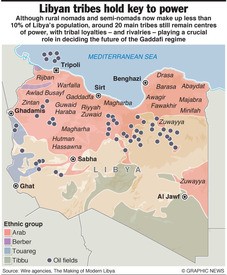 La nouvelle selon laquelle le colonel Kadhafi aurait ordonné à son armée de se retirer de la ville de Misrata pour y confier le rétablissement de l’ordre aux tribus qui lui sont loyales, permet de mettre en évidence la grande réalité tribale sur laquelle repose la vie sociale libyenne [1].
La nouvelle selon laquelle le colonel Kadhafi aurait ordonné à son armée de se retirer de la ville de Misrata pour y confier le rétablissement de l’ordre aux tribus qui lui sont loyales, permet de mettre en évidence la grande réalité tribale sur laquelle repose la vie sociale libyenne [1]. 




 del.icio.us
del.icio.us
 Digg
Digg

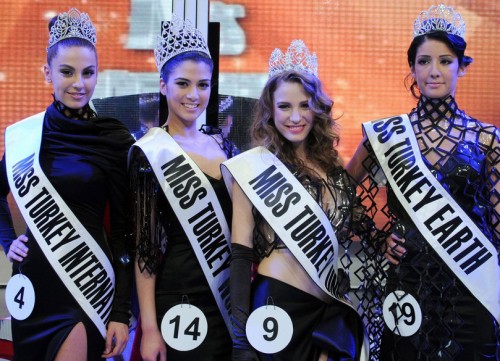
.jpg)

 El artículo 2 inciso 1 de nuestra Constitución señala que “toda persona tiene derecho a la vida, a su Identidad, a su integridad moral, psíquica y física a su libre desarrollo y bienestar. El concebido es sujeto de derecho en todo cuanto le favorece” y el artículo 19 sostiene también que todos los peruanos tienen derecho “a su identidad étnica y cultural. El Estado reconoce la pluralidad étnica y cultural de la Nación”. Así pues, el derecho a la identidad tiene un lugar relevante dentro de nuestro ordenamiento jurídico, sin embargo, lo que no se dice en la constitución es que cosa debemos entender por identidad o que es lo que el derecho – o los jueces - deben entender por tal a fin de poder determinarse en que casos se podría ver afectado o no este derecho.
El artículo 2 inciso 1 de nuestra Constitución señala que “toda persona tiene derecho a la vida, a su Identidad, a su integridad moral, psíquica y física a su libre desarrollo y bienestar. El concebido es sujeto de derecho en todo cuanto le favorece” y el artículo 19 sostiene también que todos los peruanos tienen derecho “a su identidad étnica y cultural. El Estado reconoce la pluralidad étnica y cultural de la Nación”. Así pues, el derecho a la identidad tiene un lugar relevante dentro de nuestro ordenamiento jurídico, sin embargo, lo que no se dice en la constitución es que cosa debemos entender por identidad o que es lo que el derecho – o los jueces - deben entender por tal a fin de poder determinarse en que casos se podría ver afectado o no este derecho.

.jpg)

.jpg)
